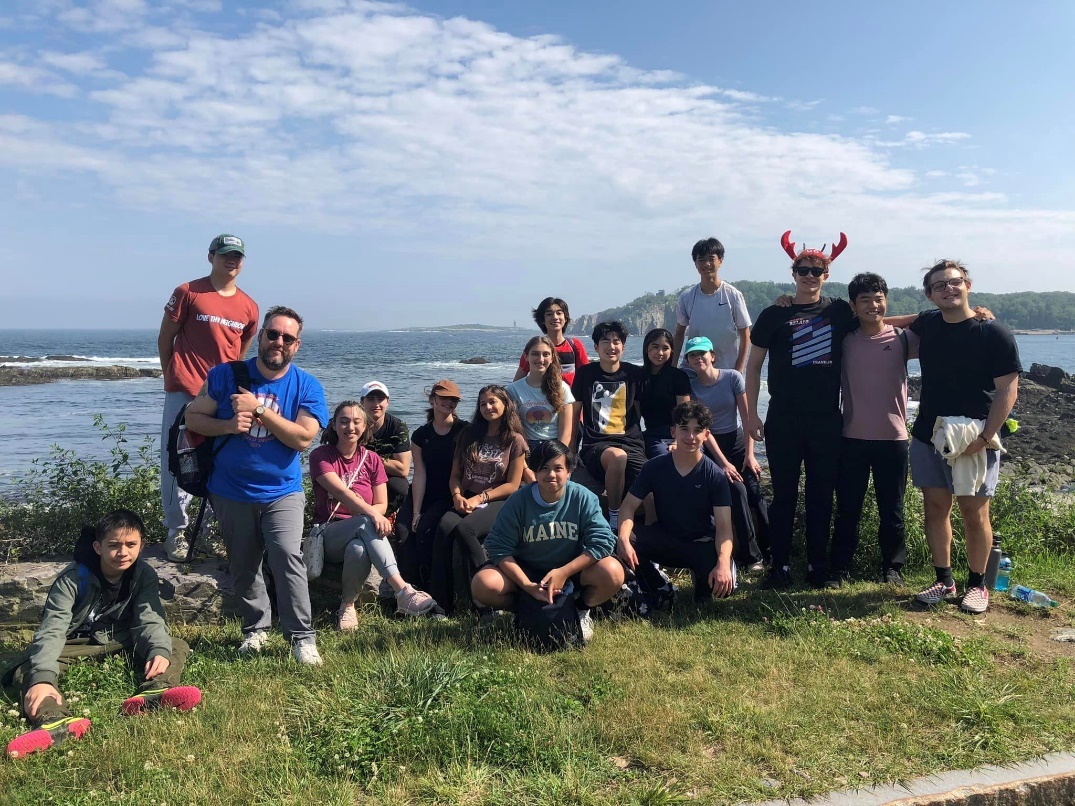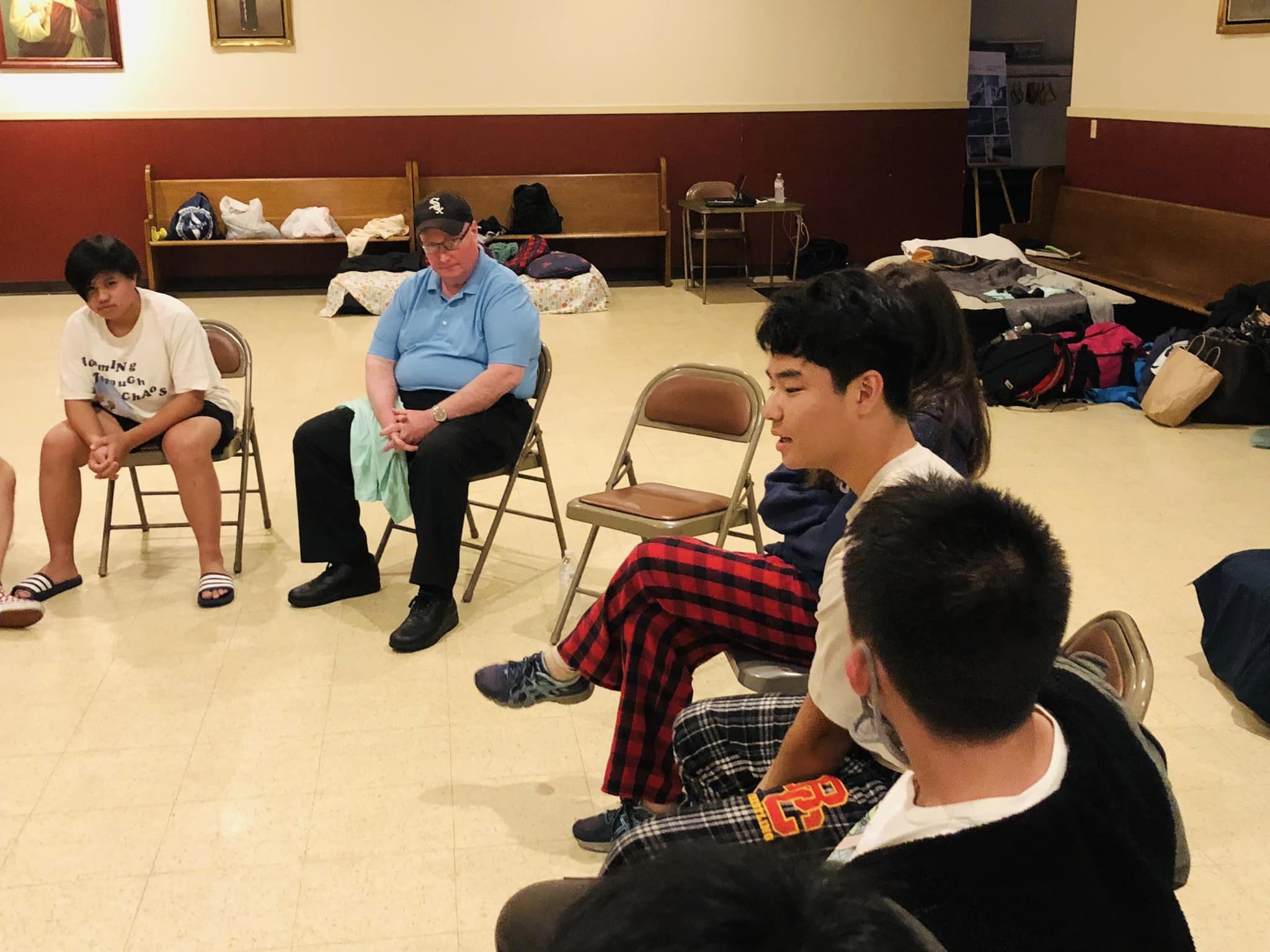
TENAFLY, New Jersey — A group of 17 teenagers from Our Lady of Mount Carmel Church in Tenafly, New Jersey, ministered to hundreds of refugees and homeless people in Portland, Maine, during a weeklong service trip this summer.
During the trip, the teens were exposed to the painful realities of being a refugee and heard stories from approximately 300 Haitian, African, and South American refugees as they worked at a soup kitchen, helped with immigration documentation, and whatever else the Diocese of Portland deemed beneficial.
The trip was led by Elliot Guerra, Our Lady of Mount Carmel Church’s director of mission development. Guerra, who is entering his 17th year in the role, started these weeklong service trips in 2009 after Hurricane Katrina devastated New Orleans. The trips continued every year until 2015. Guerra resumed them this year, encouraging the young participants — ages 14 to 18 — to “make the six feet in front of [them] better.
“At Mount Carmel, service is who we are, but it’s not some box to be checked off on,” Guerra said. Rather, he said, the refugees were allowing the volunteers to serve them, and at the same time allowing them to grow in their perspectives on the world and in their faith.
“One of the takeaways that I got is essentially that wherever we are politically on this issue, we have a broken immigration system. It’s just not functioning,” Guerra said. “We spoke to volunteers and there were all different perspectives on that issue, but everyone agrees it’s not working.”
In Portland, Maine, a basketball arena has been repurposed to house the hundreds of asylum-seekers flooding the city. As of June, the shelter had served 393 people, and it is set to be shut down on Aug. 16 so the arena can be cleaned for a later event.
During the trip, the young parishioners were at St. Vincent de Paul Soup Kitchen each day to bring food to refugees. Following this act of service, they would be sent to support the community in a variety of ways, including by volunteering at local nonprofit Partners for World Health and by mulching the playground at a Catholic Charities’ Child Development Center.

Working with Immigration Services through Catholic Charities, 18-year-old Mateus Olsson was helping refugees prepare documents that would allow them to obtain legal work authorization. An upcoming sophomore at Boston University as a hospitality and tourism management major, Olsson was given folders on refugees detailing the paperwork currently on file for them. His job was to have the refugees send additional documents to allow them to apply for work visas.
“A lot of this work is very humbling. On a day-to-day basis we kind of take in and take for granted a lot of the privileges that we have,” Olsson said. “Seeing all these people struggle is really humbling in the sense that we see the struggle that they go through just to get work.”
A majority of the refugees did not speak English. Creole was the most common language, followed by French and Spanish, so Olsson would work with an interpreter to communicate with them.
Olsson enjoyed the experience, but the difficulty of watching these people struggle continues to linger in his thoughts.
“The whole fact is that these people just want to live their lives normally. It just happens to be a fact that they are in a point of struggle and a lot of people tend to look over the fact that we’re all just individuals with lives,” he said.
Serving as a busboy for the soup kitchen, 15-year-old Jack Canaveral would go table to table and have small conversations with the refugees, which gave him insight on how they live. Often, he feels, migrants can be dehumanized into statistics. However, through listening to them speak of the family they left in their home countries, or about their concerns about housing, the individual stories “humanized those data points.
“I think it’s important just to treat people like people. We can’t treat people any differently for any case, whether its race, nationality, or an economic area. Being a good Catholic, it’s just good to treat all people well. Instead of treating people like numbers on a spreadsheet, it’s more important to treat them as people with their own lives and stories and to put ourselves in their shoes,” Canaveral said.
